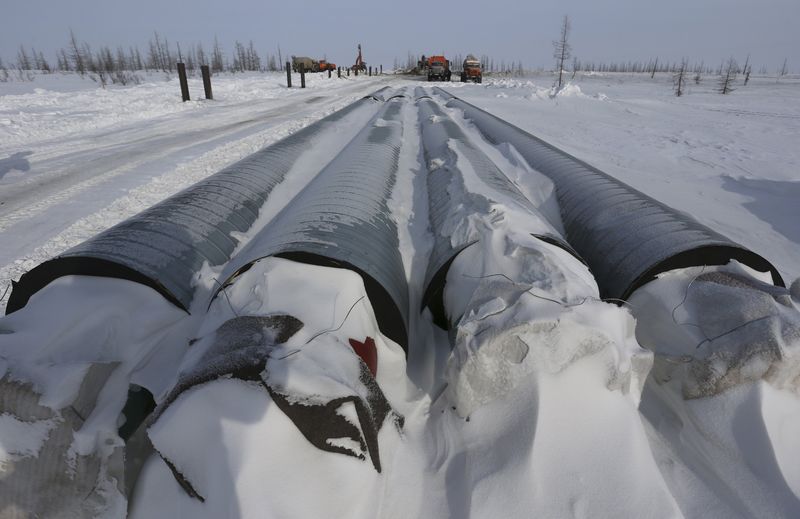By Vladimir Soldatkin
VANKOR/SUZUN OIL FIELDS, Russia (Reuters) - Russia's freezing north has never been the most welcoming place for foreign travelers, and its onshore oil riches have always been state secrets. But when the order comes from the Kremlin to open up, people obey.
Last September, President Vladimir Putin, who has been seeking new markets in Asia for Russian energy exports to replace traditional customers in Europe, announced that he would welcome Chinese investment in Vankor, a vast new oil field in remote eastern Siberia owned by state firm Rosneft.
Since then, delegations from both China and India have been flown out to visit the field in the remote tundra.
Some of the workers, who spend four weeks at a time at the isolated station - where temperatures can fall as low as minus 60 Celcius (minus 76 Fahrenheit) - have duly taken up Mandarin.
"No problem. We will work with the Chinese workers if need be," said Alexei Zyryanov, deputy head of an oil and gas production unit.
All of Vankor's output of 440,000 barrels per day of crude is already shipped east, via the East Siberia-Pacific Ocean pipeline, which includes a spur feeding China's northeast.
But a proposed Chinese investment in a stake in the project would go far further than Moscow has ever gone before to luring Beijing into its hydrocarbon industry.
Rarely has Moscow considered offering an ownership stake in such a big strategic onshore deposit to outsiders, despite decades of interest from Western majors. The offer is the more remarkable for being made to China, a rival for decades with which Russia nearly went to war in the 1960s over a border dispute.
Rosneft confirmed that it has reached a draft agreement to sell a 10 percent stake in Vankor to China.
PIVOT TO ASIA
The Kremlin has made much of its "pivot to Asia", seeking new energy markets since Western governments imposed sanctions on Moscow over the Ukraine crisis last year.
Last year, China overtook Germany as Russia's biggest buyer of crude oil, thanks to Rosneft securing deals to boost supplies via the East Siberia-Pacific Ocean pipeline and another crossing Kazakhstan.
Still, with prices for oil having halved over the past year and natural gas prices also plunging, the Kremlin may find that Beijing is now seeking tough terms for any investment.
Other energy projects that depend on Chinese demand have hit stumbling blocks. Reuters reported on Tuesday that a liquefied natural gas plant on the Pacific Ocean island of Sakhalin, intended to produce fuel for export to Asia, may be delayed by several years.
Last month Reuters reported that a flagship project to build a new pipeline for natural gas from giant new Siberian fields to eastern China may also be delayed.
Vankor is the largest oil discovery in Russia in nearly three decades, key to Russia's policy to find and tap new regions, such as east Siberia, as reserves in west Siberia, the heartland of Russian oil production, are depleting.
"It is a new Kuwait," said Alexander Cherepanov, chief engineer at Rosneft's subsidiary Vankorneft.
Workers pride themselves in being able to operate under extreme conditions.
"Wrenches sometimes break because of the frost," said an oil production operator, Gennady. "In summer, it's fine. You just use a mosquito repellent."
Few inhabited places on earth are as remote. It is an hour by helicopter to the nearest airport, Igarka, and Moscow is nearly 2,800 km (1,750 miles) away.
Deputy Prime Minister Arkady Dvorkovich said last month Russia had overcome a "psychological barrier" and was ready to offer China control over hydrocarbon reserves.
The Energy Ministry predicts the share of oil and oil products sent to Asia will double to 23 percent by 2035, and the East Siberia - Pacific Ocean pipeline will be expanded to 80 million tonnes (1.6 million barrels per day) by 2020.
Still, in the insular world of Siberian oil work, outsiders are not yet quite embraced. When a native Russian reporter asked for a "sandwich" in the employees' canteen, the woman working there was immediately suspicious.

"'Sandwich' is a foreign word," she said. "Are you a spy?"